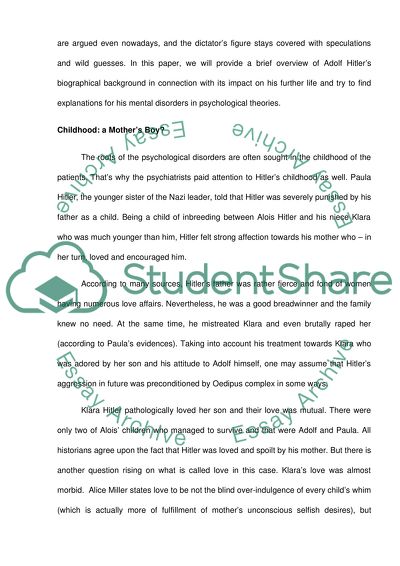Cite this document
(“Individual with a distinct personality I was thinking of Hitler Research Paper”, n.d.)
Individual with a distinct personality I was thinking of Hitler Research Paper. Retrieved from https://studentshare.org/psychology/1654529-individual-with-a-distinct-personality-i-was-thinking-of-hitler
Individual with a distinct personality I was thinking of Hitler Research Paper. Retrieved from https://studentshare.org/psychology/1654529-individual-with-a-distinct-personality-i-was-thinking-of-hitler
(Individual With a Distinct Personality I Was Thinking of Hitler Research Paper)
Individual With a Distinct Personality I Was Thinking of Hitler Research Paper. https://studentshare.org/psychology/1654529-individual-with-a-distinct-personality-i-was-thinking-of-hitler.
Individual With a Distinct Personality I Was Thinking of Hitler Research Paper. https://studentshare.org/psychology/1654529-individual-with-a-distinct-personality-i-was-thinking-of-hitler.
“Individual With a Distinct Personality I Was Thinking of Hitler Research Paper”, n.d. https://studentshare.org/psychology/1654529-individual-with-a-distinct-personality-i-was-thinking-of-hitler.


